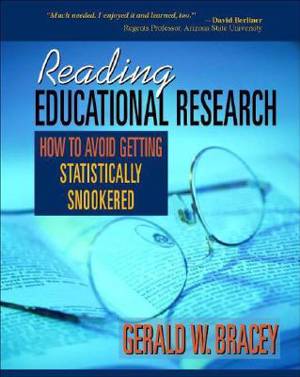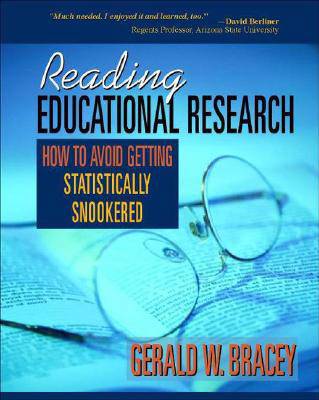
- Afhalen na 1 uur in een winkel met voorraad
- Gratis thuislevering in België vanaf € 30
- Ruim aanbod met 7 miljoen producten
- Afhalen na 1 uur in een winkel met voorraad
- Gratis thuislevering in België vanaf € 30
- Ruim aanbod met 7 miljoen producten
Reading Educational Research
How to Avoid Getting Statistically Snookered
Gerald W BraceyOmschrijving
- Gerald Bracey's primer on statistics comes out exactly when we need it most: when school folks are being driven crazy by the bureaucrats' insistence on "data-driven" everything. But Bracey makes clear that data is rarely what it seems, and that both its producers and its users need to be much more sophisticated about what it is and isn't.
Susan Harman, Principal, Growing Children School, California
With Reading Education Research, nimble-minded number cruncher and award-winning researcher Gerald Bracey takes your hand and walks you through the process of figuring out the meaning behind the figures. You don't need to be a math whiz to follow Bracey because he writes with clarity and humor, explicitly defining statistical terminology in easy-to-understand language and even offering you thirty-two specific principles for assessing the quality of research as you read it.
Reading Education Research includes four major themes that every classroom teacher will find helpful as they read research and talk about it with colleagues, parents, or administrators, including:
- understanding data and how it is used-and misused
- uncovering how variables are used in the construction of scientifically based research-and manipulated in politically motivated research
- drawing conclusions about a study and deciding whether the data presented is meaningful
- assessing the data that comes from standardized testing.
Specificaties
Betrokkenen
- Auteur(s):
- Uitgeverij:
Inhoud
- Aantal bladzijden:
- 208
- Taal:
- Engels
Eigenschappen
- Productcode (EAN):
- 9780325008585
- Verschijningsdatum:
- 1/02/2006
- Uitvoering:
- Paperback
- Formaat:
- Trade paperback (VS)
- Afmetingen:
- 167 mm x 231 mm
- Gewicht:
- 367 g

Alleen bij Standaard Boekhandel
Beoordelingen
We publiceren alleen reviews die voldoen aan de voorwaarden voor reviews. Bekijk onze voorwaarden voor reviews.











